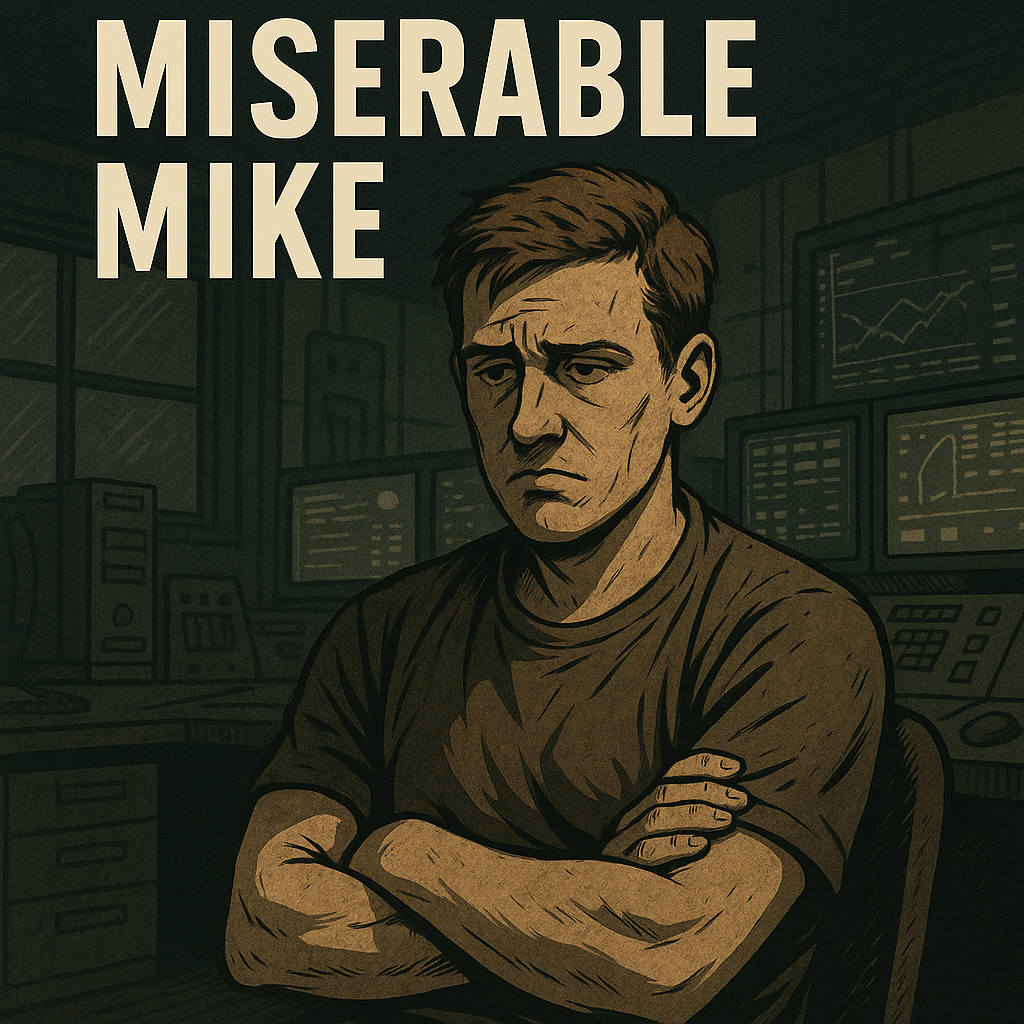
My name isn’t really Mike.
But if you work in the petrochemical industry on the Gulf Coast, you might have seen me. Maybe you’ve passed me in the control room, at the safety meeting, or in the break trailer. Maybe you already know me and don’t even realize it.
I thought this job would be the dream. I went to school, studied hard, listened when people told me that being an operator was one of the best gigs a young man could land. Steady pay, good benefits, respect in the community. For a while, I even bragged about it.
But most days, I sit behind a glowing screen for twelve miserable hours, listening to the same complaints from the same worn-down faces. The shift stretches on, the coffee goes cold, and the only thing keeping anyone awake is the constant hum of machinery. No one talks about teamwork or pride. The conversation is about how little you can do and still get by.
It’s strange. Everyone here makes more money than most of their friends and family. On paper, we’re “lucky.” But the money has become a curse. It’s just enough to trap us—too good to walk away from, not good enough to erase the emptiness.
I used to be an athlete. High school football, track, weights—I loved the grind, the challenge, the rush of giving my all. Back then, I believed hard work was its own reward. But here? Work harder and people glare at you. Speak up and you’re told to “slow down—you’re making the rest of us look bad.” What kind of team punishes its players for trying?
It’s not one person’s fault. It’s the culture. A system that quietly whispers: do the minimum, don’t rock the boat, don’t care too much. That whisper becomes the loudest voice in the room. And after a while, you start to believe it.
The culture is the villain.
And it’s winning.
There is one exception. My shift supervisor. He doesn’t have a title that carries much weight outside the unit, but inside, he carries himself differently. He’s seen it all—good years, bad years, crews that cared, crews that coasted. He doesn’t pretend the problems don’t exist, but he tells me things can change. That patience and perspective matter. That it’s possible to find meaning in small acts, even in a place where most have given up.
Some days I believe him. Some days I don’t.
Because while he talks about patience, I feel trapped.
I’ve got a mortgage. A baby at home. A wife who counts on me to provide. And here I am, sitting in a control room at 2:00 a.m., wondering if I made the wrong career choice.
I try not to think about what else I could have done with my life. But the thoughts creep in anyway. Coaching maybe. Teaching. Something where my energy and drive would matter, where effort would mean something. Instead, I’m here, staring at numbers on a screen, working next to people who roll their eyes at the idea of accountability.
There’s a heaviness that settles on you in this industry. It’s not the heat or the chemicals—it’s the weight of wasted potential. You look around and see men and women who could be great, but who’ve chosen comfort over challenge. They’re not bad people. They’re just stuck, like me. But unlike me, they’ve made peace with it.
That terrifies me more than anything.
Because I can feel it happening. Little by little, the misery seeps in. You start complaining more. You stop caring as much. You become one of them. And once that switch flips, it’s almost impossible to turn back.
The culture doesn’t just accept mediocrity—it rewards it. The ones who coast never get called out. The ones who push get worn down until they quit or fall in line. That’s the silent agreement: keep your head down, cash your check, and don’t expect more.
But I can’t stop expecting more.
That’s why I’m miserable.
My supervisor says culture can change, but it takes time. He says not to let other people’s surrender become my story. He says this job is what you make of it. I want to believe him, but when I walk into another twelve-hour shift surrounded by grumbling and sighs, it feels like trying to run uphill in boots full of mud.
Some nights, I think about walking away. Just quitting, even if it wrecks everything. Other nights, I tell myself it will get better, that something will shift. But the truth is, I don’t know.
I’m Miserable Mike.
I could be anywhere on the Gulf Coast. Maybe at your site. Maybe working alongside you.
And here’s the part that should keep you up tonight: if you’re wondering whether I’m at your plant, you already know the answer.
Because you’ve seen me.
And you’ve felt this culture.
The question isn’t whether Miserable Mike works for you.
The question is: what are you going to do about it?